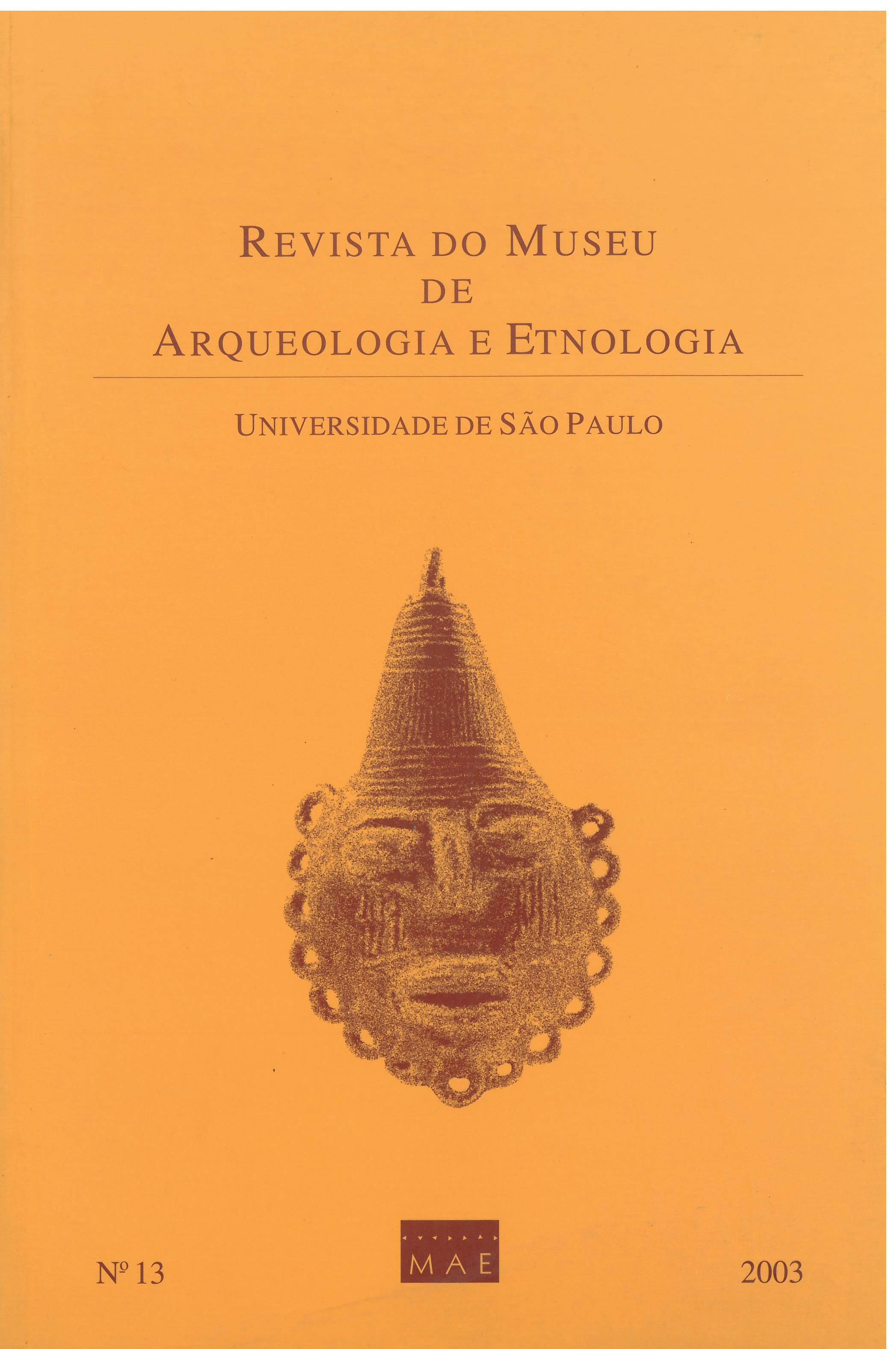Xerente Ethnoarchaeology: the construction of organization and space use model of the villages Porteira and Rio Sono.
DOI:
https://doi.org/10.11606/issn.2448-1750.revmae.2003.109488Keywords:
Ethnoarchaeology - Xerente - Material culture - Archaeology - Anthropology.Abstract
This paper presents the results of the dissertation named “Organization and the use of space in two Xerente’s villages: an etnoarchaeological approach” The goal of this research was to elaborate and propose an ideal model of organization and of the use of space by the Xerente indigenous people, based on studies of two of their villages, both of them located at the Terra Indígena Xerente region, in the state of Tocantins, Brazil. Our basic system of proceeding was guided by the search of patterns of relationship amid their material culture their behavior and their culture. Following this method of research, all living structures and activities areas of both villages were observed, described, noted and mapped. Structure and activities were them related to the production of material culture, to its producers and its period of use. The database originated by this work and its analyses resulted on the elaboration of ideal model of the Xerente people’s use of space. We took into account the homogenous variables and the differences between the two villages, and this also gave us the possibility to analyze the variations that are inherent to the occupation pattern of the Xerente people.Downloads
Download data is not yet available.
Downloads
Published
2003-12-23
Issue
Section
Articles
License
Copyright (c) 2003 Flavia Prado Moi

This work is licensed under a Creative Commons Attribution-NonCommercial-NoDerivatives 4.0 International License.
How to Cite
MOI, Flavia Prado. Xerente Ethnoarchaeology: the construction of organization and space use model of the villages Porteira and Rio Sono. Revista do Museu de Arqueologia e Etnologia, São Paulo, Brasil, n. 13, p. 153–173, 2003. DOI: 10.11606/issn.2448-1750.revmae.2003.109488. Disponível em: https://www.journals.usp.br/revmae/article/view/109488.. Acesso em: 19 may. 2024.













